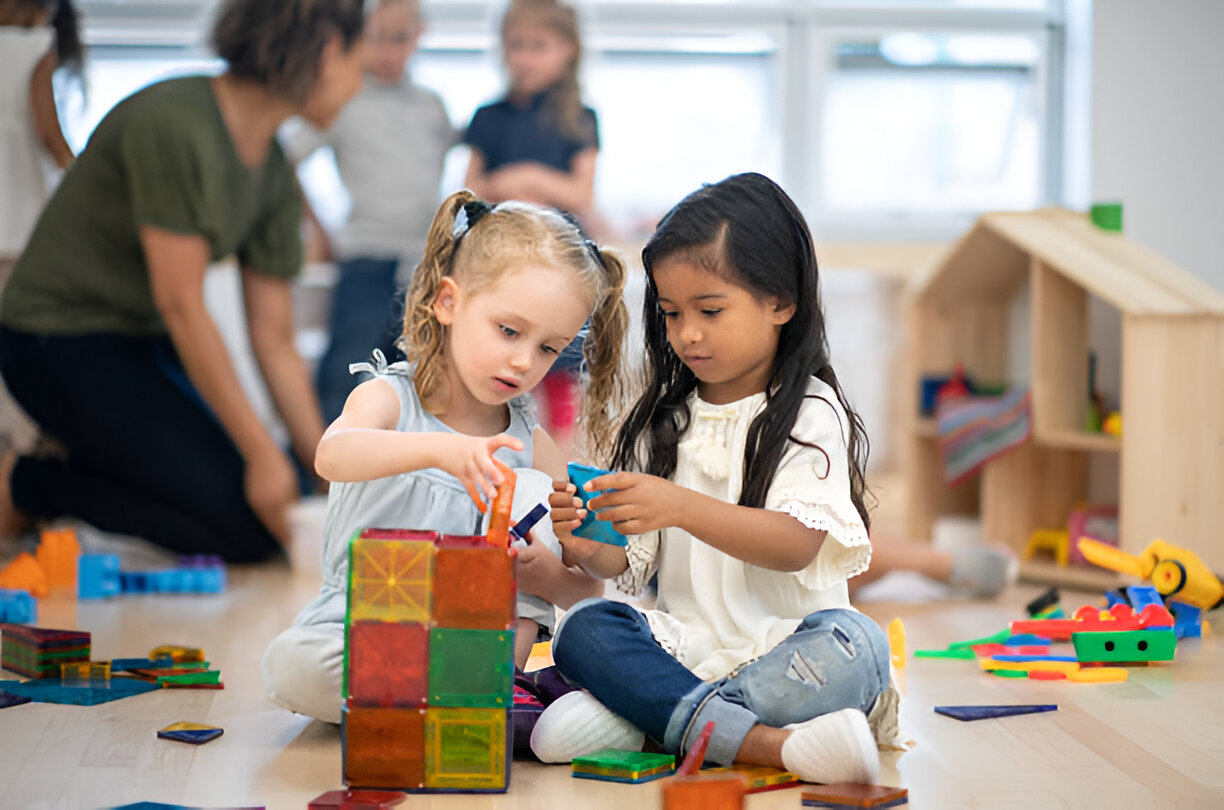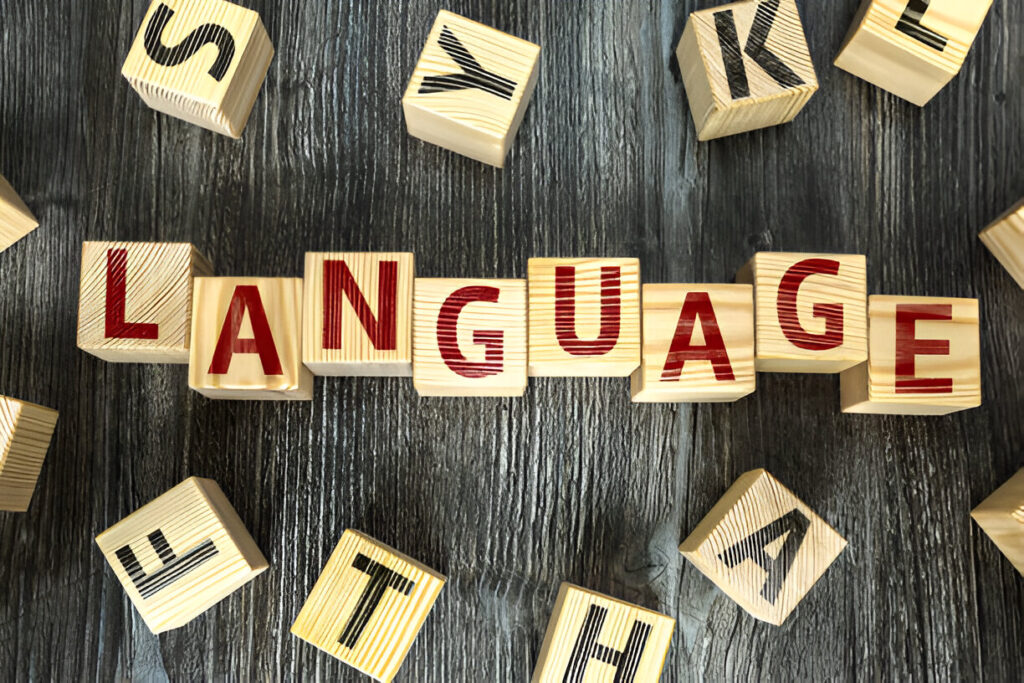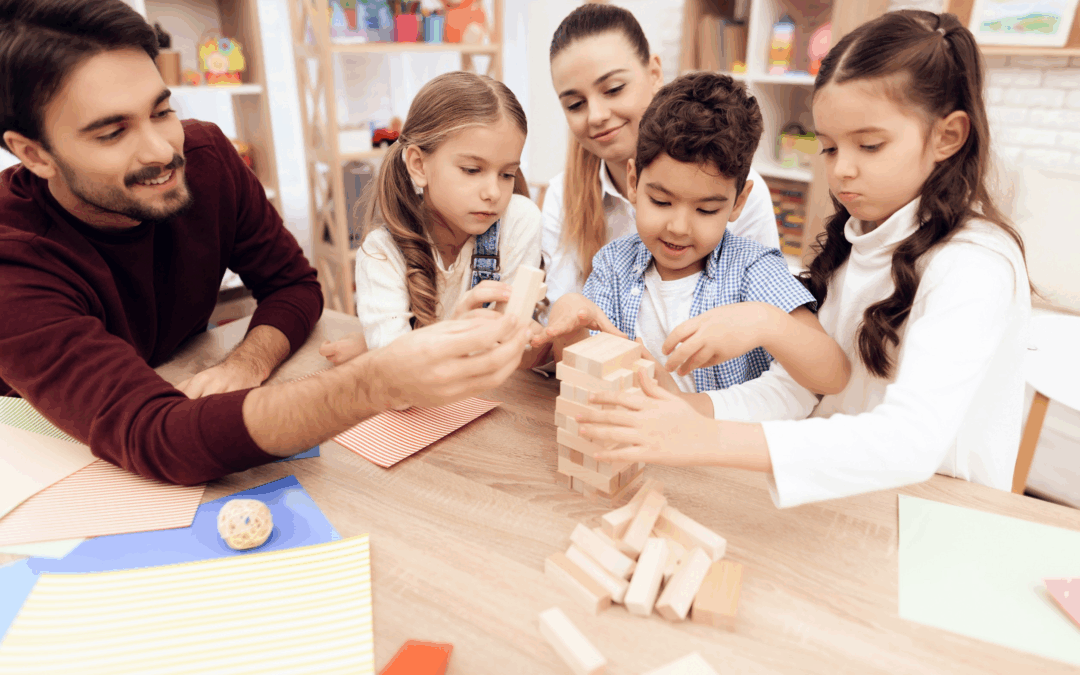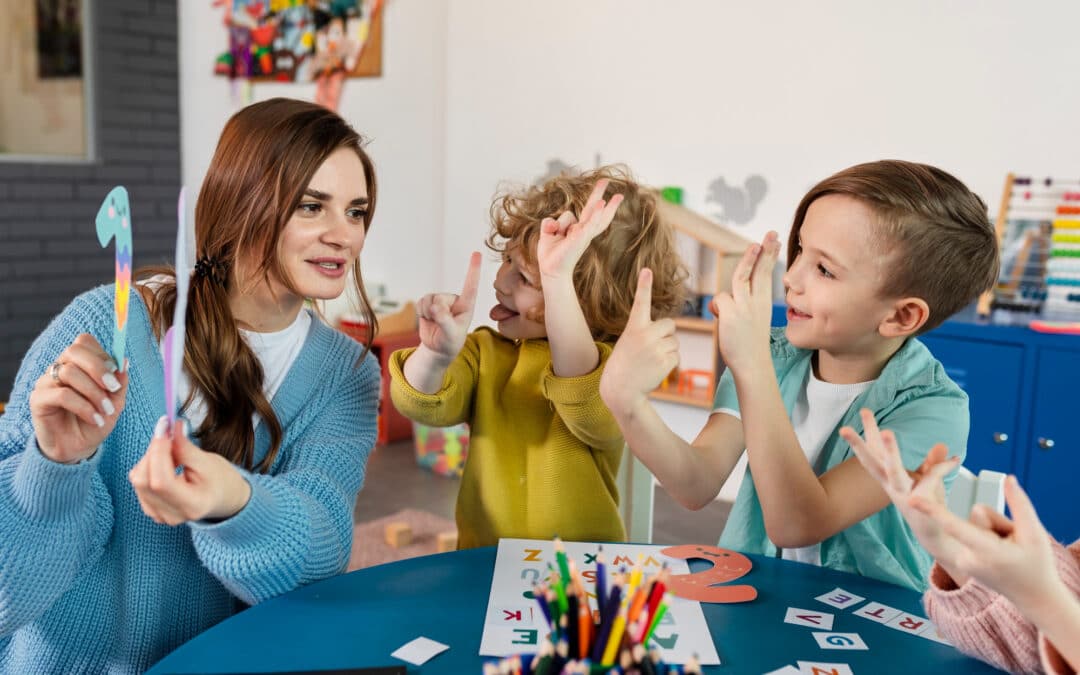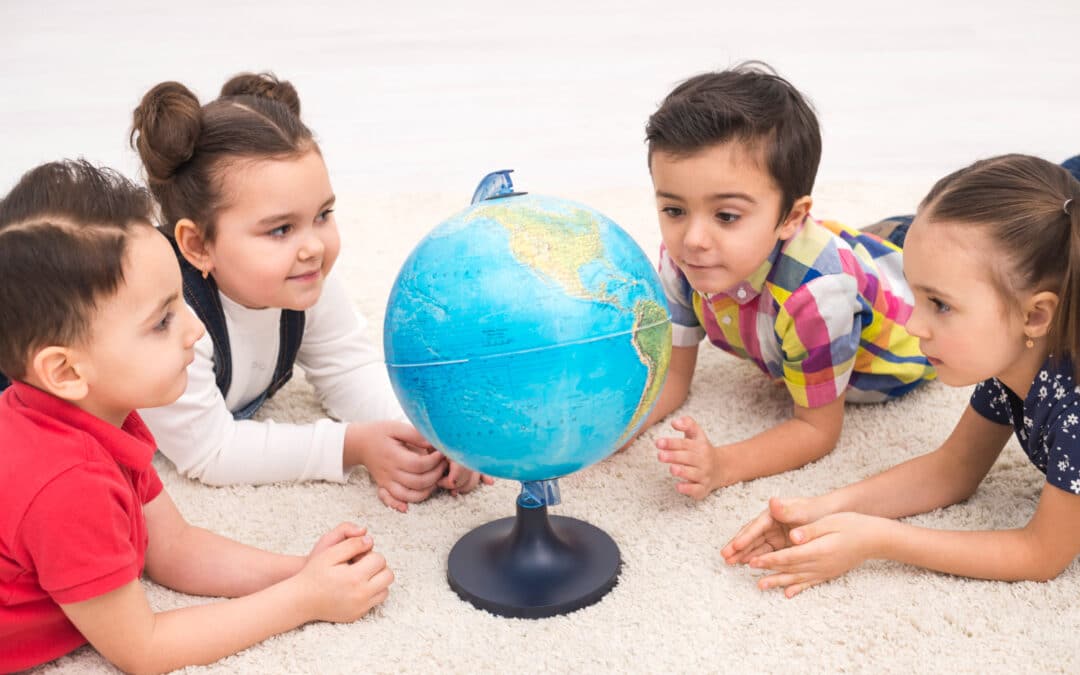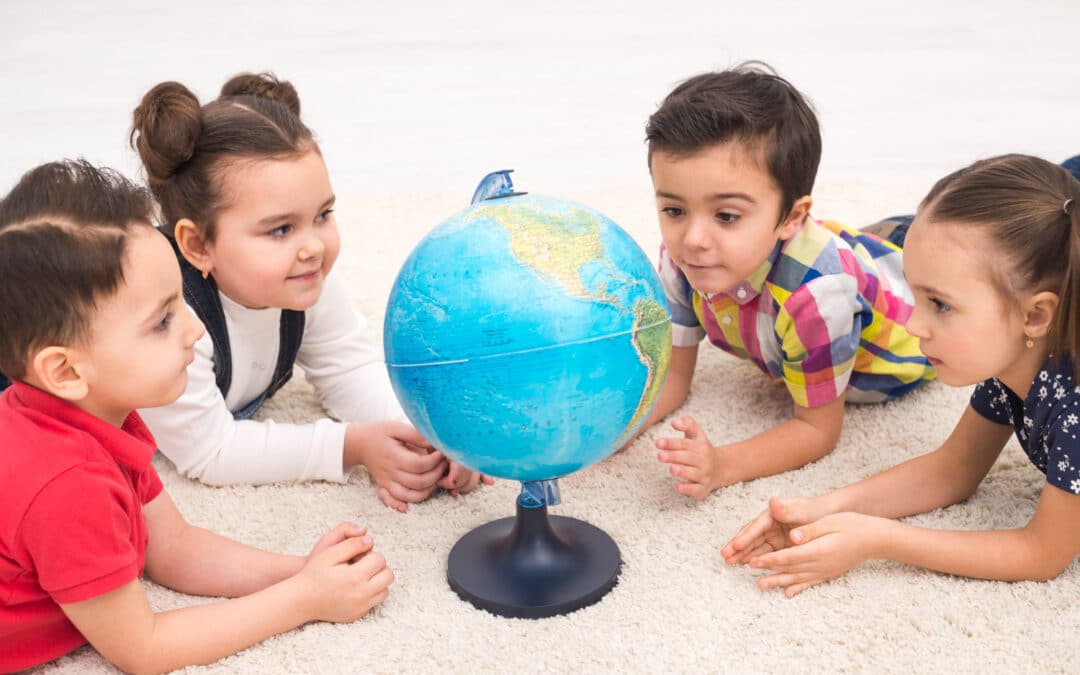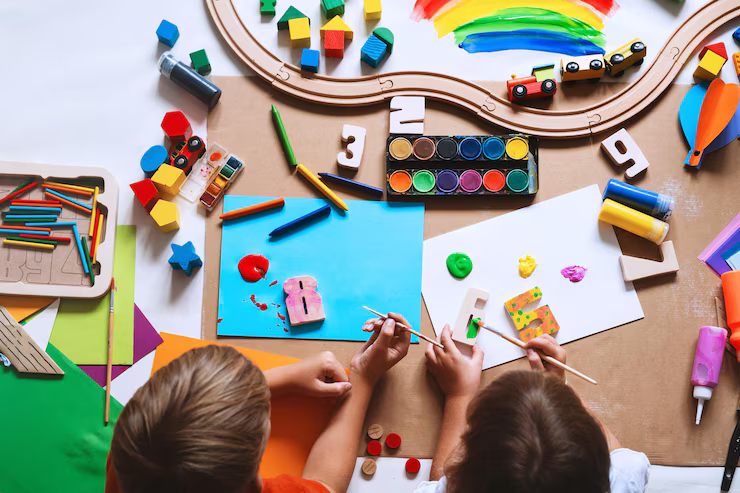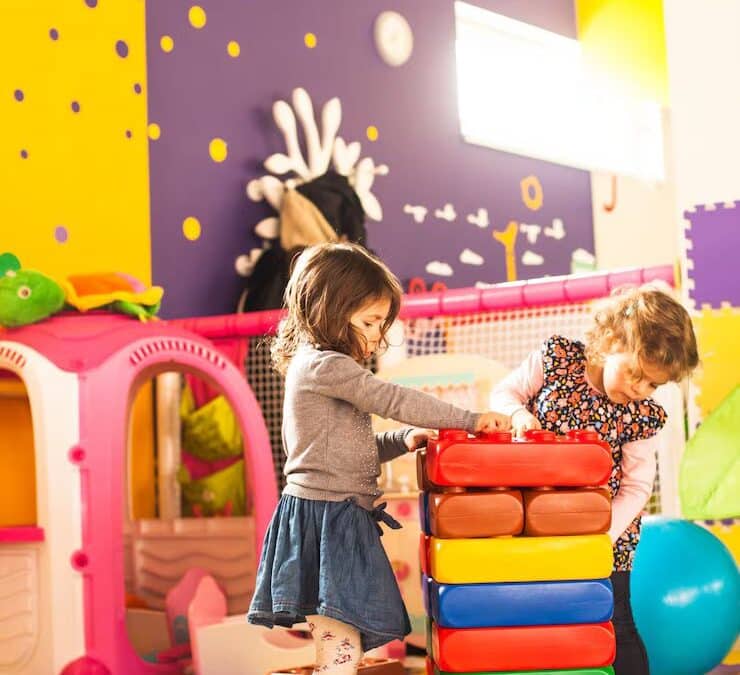Amici Trilingual Montessori, located in the heart of Ahwatukee, Phoenix, is a leading example of innovative education. This one-of-a-kind school combines the proven Montessori approach with an immersive trilingual program in Mandarin, Spanish, and English.
In today’s interconnected world, being able to speak multiple languages is no longer just an advantage—it’s becoming necessary. Studies indicate that multilingual children develop better cognitive abilities, creative thinking skills, and cultural understanding, all of which prepare them for success in our global society.
At Amici, your child will learn in an environment that encourages their natural curiosity and language skills. Experienced teachers who are native speakers of the target languages will lead students through daily activities, providing genuine learning experiences that go beyond traditional language teaching methods.
The school’s mission is based on three key principles:
- Promoting language fluency through immersive education
- Cultivating an appreciation for different cultures and a global perspective
- Establishing strong academic foundations using Montessori techniques
Your child’s experience at Amici goes beyond just learning languages—it opens a world of opportunities. The school’s dedication to multicultural education fosters an atmosphere where children grow into self-assured individuals with a deep understanding of various cultures, preparing them to thrive in our diverse world.
The Trilingual Immersion Program at Amici
At Amici Trilingual Montessori, language immersion goes beyond traditional language learning. Children experience a dynamic environment where Mandarin, Spanish, and English blend seamlessly into their daily activities.
Creating a Natural Language-Learning Setting
The immersion program creates a natural language-learning setting where children:
- Participate in morning circles conducted in different languages
- Engage in art projects with instructions in multiple languages
- Learn songs and stories from diverse cultural backgrounds
- Practice practical life skills through multilingual guidance
Authentic Linguistic Environments
Native-speaking teachers lead dedicated language zones within the classroom, creating authentic linguistic environments. When a child enters the Mandarin area, they’re transported into a Chinese-speaking space where language flows naturally through:
- Hands-on activities
- Cultural celebrations
- Interactive storytelling
- Daily conversations
This approach mirrors how children acquire their first language – through natural exposure and meaningful interactions. Your child might start their day singing Chinese nursery rhymes, transition to Spanish counting games, and end with English creative writing activities.
Benefits of Native-Speaking Educators
The presence of native-speaking educators ensures:
- Authentic pronunciation and intonation
- Cultural context in language learning
- Real-world language applications
- Natural vocabulary building
Children absorb languages effortlessly as they move through different learning stations. A math lesson might incorporate Mandarin numbers, while a cooking activity introduces Spanish ingredients. This integrated approach helps children develop:
- Strong listening skills
- Natural speaking abilities
- Cultural awareness
- Confidence in multilingual settings
The Impact of Early Exposure to Languages
Research shows that early exposure to multiple languages enhances cognitive development and problem-solving abilities. At Amici, your child doesn’t just learn languages – they live them through daily immersion experiences that make multilingual development a natural part of their educational journey.
Advantages of a Multilingual Education
Learning multiple languages at an early age unlocks remarkable cognitive benefits that extend far beyond communication skills. Children who receive multilingual education develop enhanced mental flexibility and problem-solving abilities, as their brains actively navigate between different language systems.
Key cognitive advantages include:
- Improved memory retention
- Enhanced attention span
- Superior decision-making skills
- Advanced creative thinking abilities
- Stronger analytical capabilities
Research shows that multilingual children demonstrate greater academic performance across various subjects, including mathematics and science. Their ability to process information through multiple linguistic lenses creates deeper learning connections and strengthens their cognitive framework.
The cultural impact of multilingual education shapes children into empathetic global citizens. Through language acquisition, students naturally absorb:
- Cultural traditions and customs
- Different worldviews and perspectives
- Social norms and etiquette
- International art and literature appreciation
- Global communication styles
This cultural immersion prepares children for success in an interconnected world. Multilingual students develop natural adaptability and cross-cultural communication skills essential for future academic and professional opportunities.
The economic advantages of multilingual fluency are significant in today’s global marketplace. Companies actively seek professionals who can:
- Navigate international business relationships
- Bridge cultural gaps in negotiations
- Serve diverse customer bases
- Lead multinational teams
- Facilitate cross-border collaborations
Parents who choose multilingual education invest in their children’s future success. Early exposure to multiple languages creates neural pathways that make additional language acquisition easier throughout life. This foundation enables children to maintain linguistic flexibility and cultural adaptability as they grow.
Understanding the Montessori Method
Dr. Maria Montessori changed early childhood education in the early 1900s with her innovative method, which was based on scientific observations of how children naturally learn. She discovered that children have an inherent desire to learn and grow through their interactions with the world around them.
The Montessori philosophy is built upon three fundamental principles:
- Respect for the Child: Every child is seen as a distinct individual with their own pace and style of learning.
- The Absorbent Mind: Children have a natural ability to take in knowledge from their environment through sensory experiences.
- Sensitive Periods: There are specific time frames when children are most open to developing certain skills.
At the core of the Montessori method is self-directed learning. In Montessori classrooms, you’ll observe children freely selecting their activities based on their interests and readiness for development. This freedom fosters their innate curiosity and boosts their confidence in making decisions.
The Role of Hands-On Activities
Hands-on activities are crucial in the Montessori classroom, serving various purposes:
- Practical Life Exercises: Tasks such as pouring, buttoning, and preparing food that promote motor skills and independence.
- Sensorial Materials: Specifically crafted tools that assist children in honing their senses and grasping abstract ideas.
- Cultural Activities: Interactive exploration of geography, science, and arts that link children to the wider world.
The Importance of a Prepared Environment
The meticulously arranged environment includes furniture and materials designed for children, positioned at heights they can reach. This setup allows children to move about freely and work on their own. Teachers take on the role of guides, observing each child’s progress and introducing new resources at appropriate stages of development.
This evidence-based approach to education cultivates a natural learning atmosphere where children acquire vital life skills alongside academic knowledge. By integrating physical movement with cognitive tasks, children establish neural connections and gain a deeper comprehension of concepts through firsthand experience.
The Prepared Environment at Amici
At Amici, the prepared environment serves as a dynamic learning space designed to spark curiosity and facilitate natural development. Each classroom features carefully curated multisensory materials that engage children through:
- Visual elements – colorful geometric shapes, letters, and numbers
- Tactile experiences – textured surfaces and manipulative objects
- Auditory components – musical instruments and language materials
- Practical life activities – real-world tools sized for small hands
The classroom layout creates distinct learning zones, allowing children to move freely between areas dedicated to:
- Mathematics
- Language arts
- Sensorial exploration
- Cultural studies
- Practical life skills
A distinctive feature of Amici’s environment is the mixed-age classroom structure. This setup creates a micro-community where children aged 2.5 to 6 years learn and grow together. Younger students observe and learn from their older peers, while older students reinforce their knowledge through teaching and mentoring opportunities.
The benefits of this mixed-age approach include:
- Natural development of leadership skills
- Enhanced social interaction across age groups
- Peer-to-peer learning opportunities
- Reduced competition and increased collaboration
- Development of empathy and understanding
The prepared environment supports holistic development through:
- Self-directed exploration of materials
- Freedom of movement within defined boundaries
- Opportunities for both individual and group work
- Integration of practical life skills
- Cultural activities that promote global awareness
Each element in the classroom serves a specific developmental purpose, from shelves positioned at child height to materials arranged in sequence of difficulty. This thoughtful organization empowers children to make independent choices while developing concentration, coordination, and problem-solving skills.
The environment adapts to meet individual learning styles and developmental needs, ensuring each child can progress at their own pace while feeling supported and challenged appropriately.
Educational Programs for All Ages at Amici Trilingual Montessori
At Amici Trilingual Montessori, each age group receives specialized attention through carefully designed programs that align with their developmental needs. The infant program stands as a cornerstone of early childhood development, creating the foundation for lifelong learning.
Infants (Birth to 15 months) – Nido Environment
The Nido environment at Amici transforms the concept of infant care into an enriching educational experience. This thoughtfully prepared space reflects the Italian word “nido,” meaning “nest,” creating a peaceful sanctuary where infants feel secure and loved.
Key Features of the Nido Environment:
- Safe Exploration Zones – Padded areas with age-appropriate materials allow babies to move freely and discover their physical capabilities
- Sensory-Rich Materials – Natural textures, soft fabrics, and gentle sounds stimulate developing senses
- Individual Sleep Spaces – Dedicated areas respect each infant’s unique rest patterns
- Floor-Level Mirrors – Strategically placed mirrors help babies develop self-awareness
- Natural Lighting – Large windows provide gentle illumination and connection to nature
Toddlers (15 months to 2.5 years) – Independence Promotion through Everyday Living Skills
The toddler program at Amici Trilingual Montessori transforms daily activities into enriching learning experiences. Your child develops essential life skills through carefully designed activities that foster independence and self-confidence.
Key Skills Development:
- Self-dressing with age-appropriate clothing
- Basic hygiene routines
- Table setting and cleanup
- Care for personal belongings
- Simple food preparation tasks
The classroom environment features child-sized furniture and accessible materials that enable toddlers to navigate their space independently. Each activity area is thoughtfully arranged to encourage exploration and decision-making.
Daily Activities Include:
- Practical life exercises using real-world tools
- Sensorial exploration with texture boards
- Language development through songs and stories
- Fine motor skill enhancement with pouring activities
- Gross motor development in dedicated movement areas
Your toddler experiences a blend of structured and free-choice activities throughout the day. Native-speaking teachers guide children in three languages – Mandarin, Spanish, and English – creating natural opportunities for language acquisition during routine tasks.
The program emphasizes respect for each child’s developmental pace. Teachers observe and support individual progress, celebrating small victories as toddlers master new skills. This approach builds confidence and creates a strong foundation for future learning.
Social Development Opportunities:
- Collaborative cleanup sessions
- Group meal times
- Sharing and turn-taking activities
- Peer interaction during free play
- Community celebrations
The toddler environment at Amici nurtures independence while maintaining a secure, loving atmosphere. Your child learns to trust their abilities through successful completion of age-appropriate tasks, setting the stage for continued growth in the primary program.
Primary Education (2.5 to 6 years) – Language Arts Curriculum with Cultural Appreciation
The primary education program at Amici Trilingual Montessori creates a rich tapestry of language arts experiences for children aged 2.5 to 6 years. Your child will discover the magic of storytelling through daily reading sessions in Mandarin, Spanish, and English, led by native-speaking teachers who bring stories to life with animated expressions and cultural context.
The language arts curriculum integrates:
- Interactive Story Sessions: Children participate in dynamic storytelling activities, taking turns to share their interpretations and create their own narrative variations
- Reading Development: Structured phonics exercises and sight word recognition activities build strong literacy foundations
- Creative Expression: Writing workshops encourage children to craft their own stories, poems, and cultural reflections
- Cultural Immersion: Traditional songs, dances, and celebrations from various cultures enrich the learning experience
Your child will engage in hands-on cultural activities that complement their language development:
- Creating traditional art pieces from different cultures
- Learning folk songs in multiple languages
- Participating in cultural festivals and celebrations
- Preparing and sharing traditional dishes from various countries
Children develop strong comprehension skills through daily activities that combine language learning with cultural appreciation. They practice public speaking by presenting show-and-tell sessions in different languages, building confidence in their multilingual abilities.
The program nurtures natural curiosity about different cultures through immersive experiences. Students might explore Chinese calligraphy, practice Spanish dance movements, or participate in English poetry recitations – all while developing their language skills in an organic, enjoyable way.
Enrichment Beyond Academics: After-School Activities at Amici
Amici’s commitment to holistic development extends beyond regular school hours through engaging after-school enrichment programs. You’ll find your child immersed in hands-on activities that build essential life skills while fostering community connections.
The enrichment programs include:
- Culinary Adventures: Children learn basic cooking techniques, kitchen safety, and nutrition through collaborative cooking sessions
- Green Thumbs Garden Club: Students cultivate their own vegetables and herbs, understanding plant life cycles and sustainable practices
- Creative Arts Workshop: Expression through painting, sculpting, and mixed media projects
- Cultural Dance Classes: Traditional dances from various cultures represented in the school community
- Junior Scientists Club: Hands-on experiments and nature exploration activities
These programs create natural opportunities for children to practice their language skills in real-world contexts. Your child might learn Mandarin vocabulary while cooking dumplings or practice Spanish while discussing plant growth in the garden. The activities strengthen social bonds as students work together, share experiences, and develop practical skills they’ll carry throughout their lives.
The Role of Educators at Amici Trilingual Montessori
At Amici Trilingual Montessori, educators follow a unique teaching philosophy that sets them apart from traditional classroom teachers. You’ll find native-speaking teachers who serve as knowledgeable guides, creating a nurturing environment where children can explore and learn naturally.
These dedicated professionals:
- Observe and Support: Teachers carefully watch each child’s progress, stepping in with gentle guidance when needed
- Create Learning Opportunities: They prepare engaging activities that spark curiosity and encourage exploration
- Respect Individual Pace: Your child receives personalized attention, learning at their own speed without pressure
- Foster Independence: Teachers guide children to discover solutions independently rather than providing immediate answers
Authentic Language Experiences
Native-speaking educators bring real language experiences into the classroom through:
- Daily conversations in target languages
- Cultural storytelling and songs
- Interactive play-based learning
- Real-world language applications
Encouraging Risk-Taking in Language Learning
The classroom environment at Amici encourages risk-taking in language learning. Children feel safe to experiment with new words and phrases, knowing their teachers provide supportive guidance rather than critical correction. This approach builds confidence and creates natural language acquisition opportunities throughout the day.
Strong Communication with Families
Your child’s teachers maintain strong communication with families, sharing progress updates and cultural insights. This partnership between educators and parents creates a robust support system for each child’s multilingual journey.
Nurturing Global Citizens Through Immersive Education
Amici Trilingual Montessori shapes the next generation of global citizens through a unique blend of academic excellence and cultural immersion. Your child will develop into a compassionate individual who:
- Embraces cultural differences with genuine curiosity
- Communicates confidently in multiple languages
- Builds meaningful connections across diverse communities
- Develops strong problem-solving skills through multicultural perspectives
The journey at Amici goes beyond traditional education – it’s an investment in your child’s future as a well-rounded individual. Students emerge with both strong academic foundations and the social-emotional intelligence needed to thrive in our interconnected world.
Ready to give your child the gift of multilingual education in a nurturing environment? Join our vibrant community at Amici Trilingual Montessori. Contact us at 480-336-3364 or visit our campus at 1244 E. Chandler Blvd., Phoenix, to start your child’s journey toward becoming a true global citizen.
FAQs (Frequently Asked Questions)
How does the trilingual immersion program at Amici work?
The trilingual immersion program at Amici implements language immersion by providing daily interactions with native-speaking teachers. This approach fosters organic language acquisition through authentic experiences in Mandarin, Spanish, and English.
What are the advantages of a multilingual education?
A multilingual education develops fluency in multiple languages, enhances cultural appreciation and understanding, and prepares children for a globalized future, giving them a significant global advantage.
What is the Montessori method and how is it applied at Amici?
The Montessori method emphasizes self-directed learning and hands-on activities. At Amici, this approach fosters curiosity and independence in children, allowing them to explore their interests within a prepared environment.
What types of educational programs does Amici offer for different age groups?
Amici offers educational programs tailored for infants, toddlers, and preschoolers. Each program is designed to cater to specific developmental needs, promoting secure exploration for infants and independence skills for toddlers.
How do educators at Amici support children's learning?
Educators at Amici act as guides rather than traditional instructors. They create an inclusive classroom environment where children feel safe to take risks in their language learning journeys, supported by native-speaking teachers.

